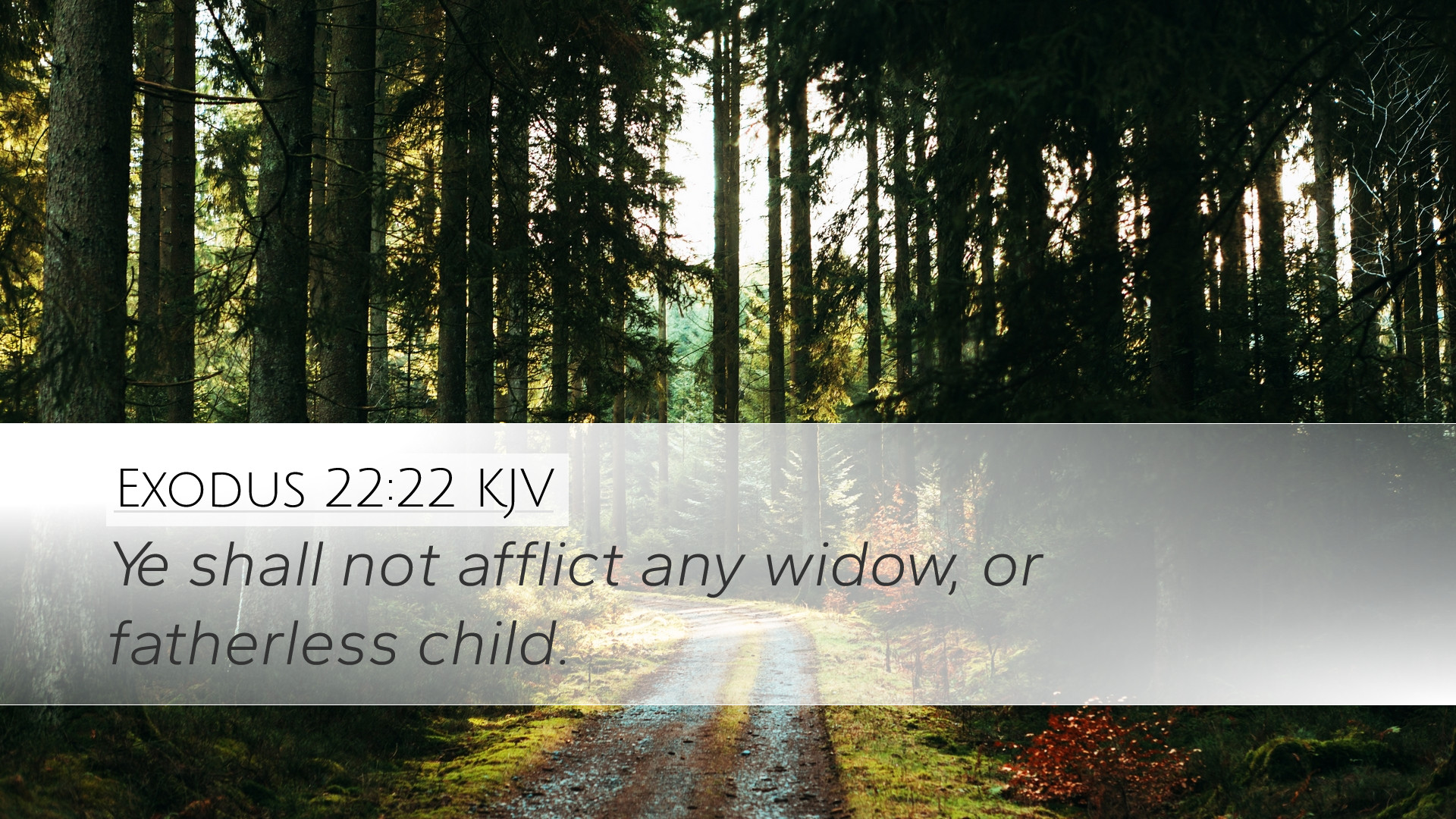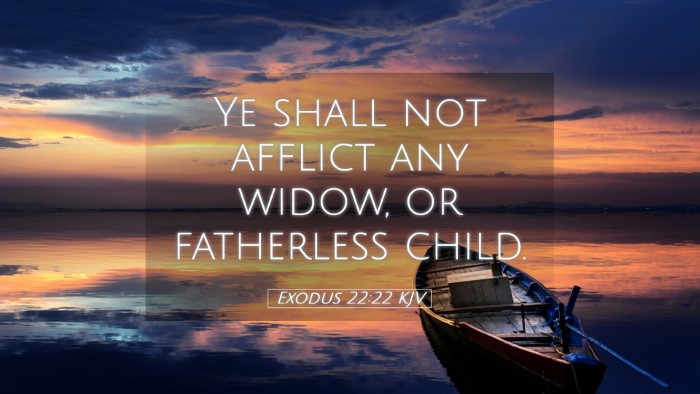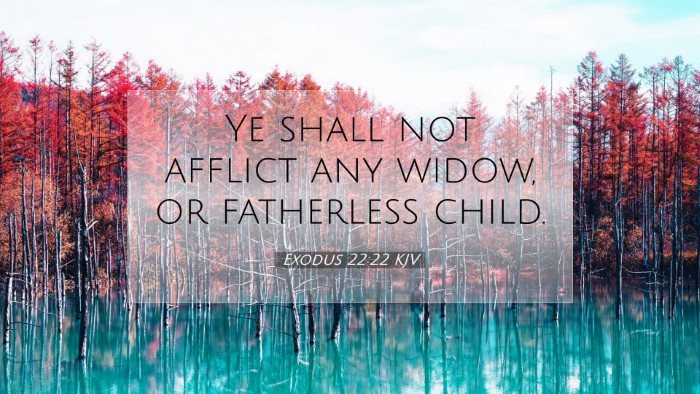Commentary on Exodus 22:22
Exodus 22:22 states: "You shall not afflict any widow or orphan." This verse emphasizes the protection of the vulnerable in society, particularly those who have lost their providers and protectors. The following commentary draws from esteemed public domain sources, providing theological insights and practical applications.
Overview and Context
In the broader context of Exodus 22, the chapter outlines various laws aimed at fostering a just and equitable society. After delivering the Ten Commandments, God continues to instruct His people on how to live righteously. The mention of widows and orphans highlights God's concern for those who are often powerless and marginalized.
Theological Insights
This command embodies several key theological principles:
- Divine Justice: This law reflects God's nature as a just and compassionate deity. According to Albert Barnes, violating this command would bring accountability, as God Himself is the protector of the weak.
- Covenant Responsibility: Matthew Henry expounds that Israel's covenant relationship with God includes social ethics, particularly caring for the disadvantaged. The protection of the widow and orphan is a reflection of God's grace.
- Social Ethics: Adam Clarke observes that the instruction to not afflict widows or orphans extends beyond mere avoidance of harm; it requires active support and provision for their needs.
Practical Applications
For pastors and church leaders, this verse serves as a cornerstone for ministries focused on social justice and outreach. Consider the following applications:
- Advocacy for the Marginalized: Congregations should openly advocate for the rights of the vulnerable, ensuring that widows and orphans receive the help they need.
- Church Support Programs: Implementing programs that provide direct assistance, such as food banks, counseling services, and financial aid, aligns with the call to protect and support these groups.
- Education and Awareness: Educating congregants about the struggles faced by widows and orphans can foster a culture of compassion and action within the Church.
Historical Context
The historical context of this verse in ancient Israel reveals that widows and orphans were among the most vulnerable members of society. Matthew Henry notes that in a patriarchal society, a widow without sons often faced destitution. This commandment served as a divine safeguard against exploitation and hardship.
Adam Clarke highlights that both the widow and the orphan represent categories of people who lacked social security or familial support. By emphasizing their importance in the Law, God establishes a paradigm for caring for the least among us.
Spiritual Reflection
This command also calls for personal reflection on our attitudes toward those who are vulnerable. As believers, we are invited to embody God's compassion in our attitudes and actions. Consider the following reflections:
- Identifying the 'Widows and Orphans': Who are the marginalized in our communities today? This might extend beyond literal widows and orphans to include single parents, the homeless, or the elderly.
- Heart of Compassion: Reflect on how your church can embody a heart of compassion towards these individuals. What barriers exist, and how can they be overcome?
- Personal Commitment: Challenge oneself and others to make personal commitments to serve and advocate for those in need.
Conclusion
In conclusion, Exodus 22:22 serves as a profound reminder of God's heart for justice and compassion towards the needy. It calls believers to action, urging them to safeguard the rights of the vulnerable in society. As expressed by Albert Barnes, the neglect of this duty incurs grave consequences, echoing that God’s judgment is particularly severe when the weak and defenseless are oppressed.
The richness of this verse invites theological study, reflects the historical context of its time, and calls the contemporary church to fulfill its covenant responsibility to care for those who cannot care for themselves.


